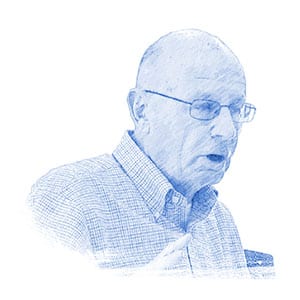Some might prefer “Maneuvering between the bullets” for the title of this note.
Whether bullets or raindrops, the concern is for the efforts of Israeli officials and others to avoid the pitfalls that appear at numerous places on our political and social landscapes.
Recent examples involve the problem of reducing electricity supplies to Gaza in order to accommodate the politics of Mahmoud Abbas, and the charge by an ultra-Orthodox politician under police investigation for corruption to save himself by asserting a violation of the Sabbath as the result of what seems like essential work on Tel Aviv’s infrastructure.
Political conflict between the Palestinian factions is not new. Indeed, competition between political and religious movements is among the elements that have gotten in the way of settling disputes between Israelis and Palestinians. Any Palestinian aspiring to community leadership who signals a willingness to compromise with Israel is labeled a traitor to the national cause by others seeking to assure their own position.
Israelis should be wary of participating with any Palestinian faction against others. The appearance of an improvement in relations resulting from such participation is likely to be temporary and partial, and likely to be outflanked by an increase in enmity or violence from another faction.
The Israeli government has taken sides, with some unpleasantness already felt from those being helped, and greater unpleasantness expected from those who suffer from the help being given to their enemies among the Palestinians.
The context is the chronic nastiness between the Fatah faction currently holding on to power in the West Bank, with the help of Israeli security forces, and the Hamas faction in control of Gaza. It’s not only been verbally nasty, but has a record of violence that qualifies as a Palestinian civil war.
The tottering President of the Palestine National Authority, Mahmoud Abbas, asked Israel to reduce its supply of electricity to Gaza, seemingly as a way of weakening Hamas and increasing the prospects of Fatah to claim responsibility for governing all of Palestine.
A government discussion included those who valued their capacity to get along, more or less, with Palestinians of the West Bank, including cooperation between Palestinian and Israeli security personnel. Against them were those certain that tightening the screws on Gaza would produce another eruption of violence, sure to cost Israeli lives in the process of dealing with it. IDF personnel participating in the government discussion expressed their own ambivalence between getting along with Fatah and provoking an escalation in missile firings or other aggression from Hamas and even more extreme Islamic factions.
The decision was to go along with Abbas’ request and reduce the supply of electricity. Implementation may be problematic, given protests from foreign governments, international organizations, and Israeli activists, including participants in the government coalition.
The Jerusalem Post headlined an article, “Hamas warns of ‘explosion’ as Gaza electricity crisis deepens.”
A day after the government decision to reduce supplies of electricity to Gaza, there were reports of Israeli contacts with Egypt and the European Union directed at reducing the pressure against Gazans.
It didn’t help those supporting cooperation with Abbas when he continued damning Israel as an enemy of Palestine, including a routine accusation that it was maintaining an Apartheid regime on the West Bank. A week later he gave the title of martyrs to three young men killed while attacking Israeli police alongside the Old City of Jerusalem, and killing a young policewoman.
Palestinian activists are all over the map, denying what Abbas said to Trump about not paying the families of terrorists (or perhaps only those of suicide bombers), and claiming cooperation with one or another of the rival gangs fighting in Syria.
Self-destructive internal warfare has long marked Palestinian politics, and must be counted among the explanations for their lack of movement toward their own state.
Turning to the squabbles among the Jews, Interior Minister and SHAS party leader Ariyeh Deri has taken on the defense of Sabbath against the Minister of Transportation and the construction of a light rail in Tel Aviv. Committees that ponder applications to work on the Sabbath have allowed construction of the light rail and related projects, in order to minimize the chaos caused by closing roads and disrupting intercity rail traffic during the week.
It’s an issue that bumps onto the media every once in a while, leading senior people dealing with infrastructure to explain yet again the necessity to violate religious norms about working on the Sabbath for the sake of activities considered essential to public health, safety, and convenience.
Deri charged at a meeting of SHAS Knesset Members that the Sabbath day has become of day of work for the railroad. He said,
“That is something extremely awful. We protest in the strongest possible manner the work on the railroad and the Ayalon highway on the Sabbath.”
It’s no surprise that other ultra-Orthodox politicians could not suffer any advantage claimed by their Sephardi colleagues/competitors. Yaacov Litzman, Minister of Health and a Knesset Member affiliated with Torah Judaism, appealed to the Minister of Transportation. According to Litzman
“We are dealing with work that is not essential and has no connection with the protection of life. We are dealing with a serious violation of Sabbath that we must do all necessary to prevent.”
Litzman’s reason for joining Deri may be nothing more than protecting the posture of his Ashkenazi ultra-Orthodox political party, which cannot be seen as less concerned about the Sabbath than its Sephardi rival.
Deri’s reason appears to be more personal, insofar as he, along with his wife, daughter, and brother have been under police investigation for tax evasion and other varieties of corruption. Deri served time in prison years ago, and may see his future dependent on wrapping himself in the defense of Sabbath.
The appearance of a religious issue in Israeli media often reflects the need for a religious activists to gain traction for reasons not connected with what is in the headlines. It’s always possible to make an issue about the violation of one or another of the numerous laws, regulations, and customs that a religious Jew can claim to be sacred. When a rabbi makes an issue about a grave–that may be Jewish–discovered at a building site, a violation of Sabbath, or an ultra-Orthodox refusal to appear at an IDF recruiting station in order to receive a routine deferment of being drafted, we can bet that the reason is the rabbi’s effort to gain a point among religious competitors; to raise contributions, most likely from overseas Jews who are told that the purpose being promoted is essential to the survival of Judaism; or as in Deri’s current case, most likely to.keep himself out of jail for the violation of secular law.
The Israeli government and individual Israelis are badgered from several directions. More- or less-so than Americans and others with competitive politics and aggressive media? There is no obvious way to measure a comparison between Israelis who feel themselves unfairly targeted by criticism from the west and their own leftists, Americans wonder about a comic opera in their presidency, or British who may think they have a loser as Prime Minister and wonder about their future in Europe.
Which of two issues (Palestinians or religious Jews) are more problematic is something which evades a satisfying answer. Cynics might conclude that Israeli Jews have learned how to deal with Arabs more successfully than how to deal with the disputes among themselves. It’s not only the Sabbath, but also recruitment to the IDF (described as Hitlerite by ultra-Orthodox extremists), and the role of female singers at public gatherings organized by government or military personnel.
The Palestinian issue is currently heated up by the political and military conflicts among Muslims. Palestinians are themselves divided among those who support or oppose actions of the Syrian government of Bashar al-Assad, Saudi Arabia, Egypt, the Emirates, Iran, Turkey, Qatar, and Hezbollah.
While some Israelis feel it’s the right time to score some points with what seems likely to be the winning side among competing Muslims, the greater wisdom may be to stay away, and to minimize the blows (verbal and otherwise) likely to come from all Muslims who see an advantage in attacking Jews and the Jewish State.
Reprinted with author’s permission from The Jerusalem Post




